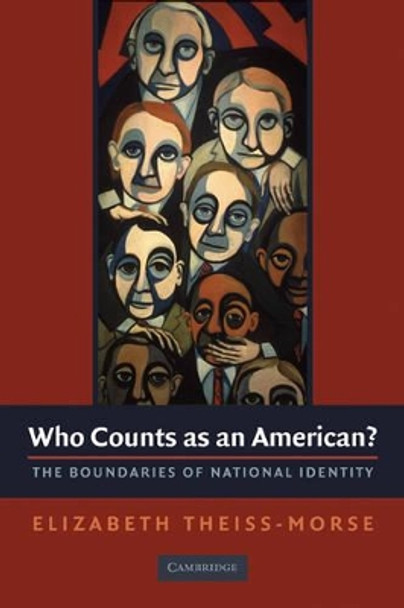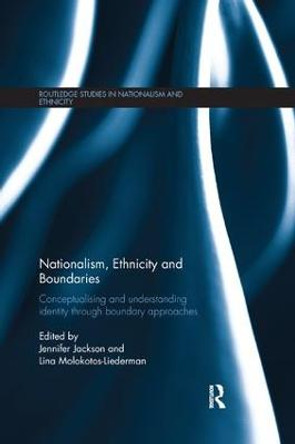Description
This book develops a social theory of national identity and uses methods to examine the importance of identity in the American context.
About the Author
Elizabeth Theiss-Morse is Professor and Chair of Political Science at the University of Nebraska, Lincoln, where she has taught since 1988. She is the co-author of two award-winning Cambridge University Press books: Congress as Public Enemy: Public Attitudes toward American Political Institutions (co-authored with John R. Hibbing), winner of the APSA's Fenno Prize in 1996 for the best book on Congress; and With Malice Toward Some: How People Make Civil Liberties Judgments (co-authored with George E. Marcus, John L. Sullivan and Sandra L. Wood), winner of the APSA's Best Book in Political Psychology Prize in 1996. A second book written with John Hibbing, Stealth Democracy: Americans' Beliefs about How Government Should Work (Cambridge, 2002), was named an 'Outstanding Academic Title' by Choice magazine in 2003. She also co-edited with John Hibbing What Is It About Government that Americans Dislike? (Cambridge, 2001). She has published articles in the American Journal of Political Science, American Political Science Review, Perspectives on Politics, Political Psychology, and Political Behavior, among others, and has received five National Science Foundation Grants.
Reviews
"Theiss-Morse tackles the fascinating topic of national identity, drawing on social identity theory to lend sharp insight into the dynamics of national loyalty and commitment. In doing so she brings fresh eyes to the study of patriotism and nationalism, arguing that they are predominantly social not intellectual in nature. The social nature of American identity is laid bare in extensive empirical analyses which document who is most strongly identified as American and the limits such individuals place on national boundaries. Theiss-Morse develops her thesis clearly and succinctly to argue that, on balance, national identity is negative, leading to a sense of tight and exclusive ingroup boundaries that place limits on government assistance to those who fall outside subjectively drawn internal borders. She brings a fresh approach to the long-standing debate on the merits and faults of patriotism. Who Counts as an American? is sure to become essential reading for researchers interested in the dynamics of patriotism and national attachments." -Leonie Huddy, State University of New York at Stony Brook
"In Who Counts as American? Theiss-Morse explores the dynamics of ingroup and outgroup attitudes as they apply to the important question of national identity. Drawing on multiple methodological approaches, she examines how national identity affects our loyalty to and willingness to help one another, while simultaneously promoting exclusionary tendencies. This book could not be more timely in its recognition of the tensions between Americans' need for a sense of community as well as for greater appreciation of the country's diversity." -Diana Mutz, University of Pennsylvania
"This is a highly original and timely study of American national identity that will change the way we think about national identities and how they shape a range of political evaluations, for good or ill. Armed with a new measure of the strength of American identity, Elizabeth Theiss-Morse answers a slew of fascinating questions that few scholars have asked before, but which have fueled rancorous debate in the aftermaths of 9/11, the Katrina disaster, and the Iraq War. Who most strongly identifies with the American people (answer: Christians, whites and individualists)? What characteristics do people feel define a 'true' American (answer: Christian, conservative), and which domestic groups tend to feel excluded from that category (answer: Blacks)? And politically speaking, how does American national identity shape Americans' willingness to help each other in times of need, as well as reactions to searing criticisms of America made by either typical or 'marginalized' Americans? The book goes far beyond cliched answers to these important questions, and is sure to provoke thoughtful debate. Conceptually and empirically compelling, Who Counts as an American? is destined to become the new 'Bible' for anyone interested in studying the political effects of social and national identities." -Mark Peffley, University of Kentucky
"Using an array of empirical techniques, and weaving a tapestry between political psychology and political theory, this pathbreaking and well-written book sheds lucidity on long-standing debates about the effects of national identity. Examining the American case, but with generalizable results, Theiss-Morse shows that national identity both enhances solidarity and leads to xenophobia. Theorists will read Theiss-Morse's book to understand how national identity both buttresses and undermines social justice. Political psychologists will read this book to understand how to think of national identity in more subtle and interesting ways. By examining 'strong identifiers,' and 'weak identifiers,' Theiss-Morse settles many issues concerning national identity, and opens up new important research paths. This is an innovative and very important book that will bring much needed clarity to the debate about national identity." - Jeff Spinner-Halev, University of North Carolina-Chapel Hill
"...the book marks an important step forward in understanding American political identity...Theiss-Morse has brought theoretical and empirical attention to an important topic that will likely grow in important in a world marked by globalization and increased international interactions." Perspectives on Politics, Russel J. Dalton, University of California- Irvine
"Theiss-Morse's real contribution is using a new theoretical approach to reimagine the borders of an connections between Americans, beyond formal citizenship status...Recommended." -CHOICE, R. A. Harper, York College
"This is an excellent book and should be read by anyone interested in better understanding the political dynamics of American national identity." Political Science Quarterly, Ronald Schmidt, California State University- Long Beach.
Book Information
ISBN 9780521756952
Author Elizabeth Theiss-Morse
Format Paperback
Page Count 242
Imprint Cambridge University Press
Publisher Cambridge University Press
Weight(grams) 300g
Dimensions(mm) 226mm * 150mm * 15mm







